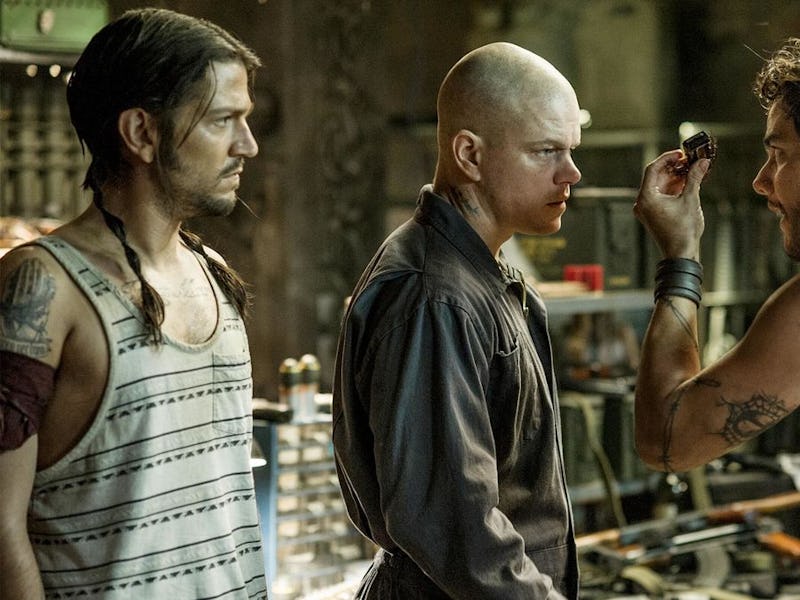Neill Blomkamp’s Epic Sci-Fi Flop Deserves Reappraisal
Elysium’s highs hit harder than they did a decade ago.

Sci-fi movies tend to either age very well or very, very poorly. While many older sci-fi stories still have a certain charm, their visions of the future feel much less advanced, perceptive, and realistic than they did upon release. There’s nothing wrong with them, but time can make one’s ideas, no matter how detailed or logical, look antiquated.
But some ideas don’t age as poorly as they should. On the contrary, some sci-fi movies only seem more possible now than when they were created. That’s certainly the case for writer-director Neill Blomkamp’s 2013 sci-fi epic, Elysium. The film, which received mixed reviews upon release, takes place in a future where both humanity and the Earth itself have been torn apart by greed, indifference, and cruelty.
Ten years after its release, Elysium hasn’t outgrown its narrative and stylistic flaws. However, its vision of a world where the wealthiest among us have literally cut themselves off from the rest of humanity feels far more timely than it did even just in 2013. It may not be the subtlest blockbuster ever, but some ideas can stand to be communicated with a heavier hand.
Set in 2154, Elysium takes place on a ruined Earth. The wealthy have quarantined themselves in an orbiting space station with fresh air, good food, and advanced medical technology unavailable to the masses. We follow Max Da Costa (Matt Damon), a criminal on parole forced into a dangerous job by his ruthless corporate bosses that leaves him with only a few days to live.
Intent on saving his own life, Max agrees to take a job for a hacker named Spider (Wagner Moura) in exchange for illegal passage to Elysium’s eponymous space station. In working with Spider, Max puts himself in the crosshairs of Jessica Delacourt (Jodie Foster), Elysium’s pompous defense secretary, and her psychotic, Earth-based field agent, M. Kruger (a maniacal Sharlto Copley), but gains access to data that could permanently alter the balance of power that has divided humanity.
As its premise suggests, Elysium wears its ideas about the global wealth gap on its sleeve. It relentlessly bludgeons both its characters and its viewers with its criticisms over 109 minutes. For some, that may make Elysium a thoroughly dumb film, which is largely how critics viewed it upon release. A kinder interpretation, however, paints Elysium as a film that feels so strongly for its characters and their plight that it doesn’t obfuscate its themes.
What’s the use in making subtle arguments about wealth and poverty, Blomkamp seems to ask, when the ways the rich take advantage of everyone else are usually anything but discreet? Whether it’s how nonchalantly Max is pressured to put his own life on the line for his uncaring employers, or how Elysium’s borders are protected, Blomkamp’s film packs in more than a few cutting observations about life amid growing class disparity.
Elysium may not be perfect, but it feels timelier than it did in 2013.
In the years since Elysium was released, its future has begun to seem less ham-fisted. In an age when certain billionaires are prone to sharing their plans for leaving Earth behind, the idea of a space station reserved solely for the world’s elite doesn’t seem as far-fetched as it should. Time has been kind to Elysium, even if it hasn’t been kind to us.
Elysium is streaming on Hulu.
This article was originally published on